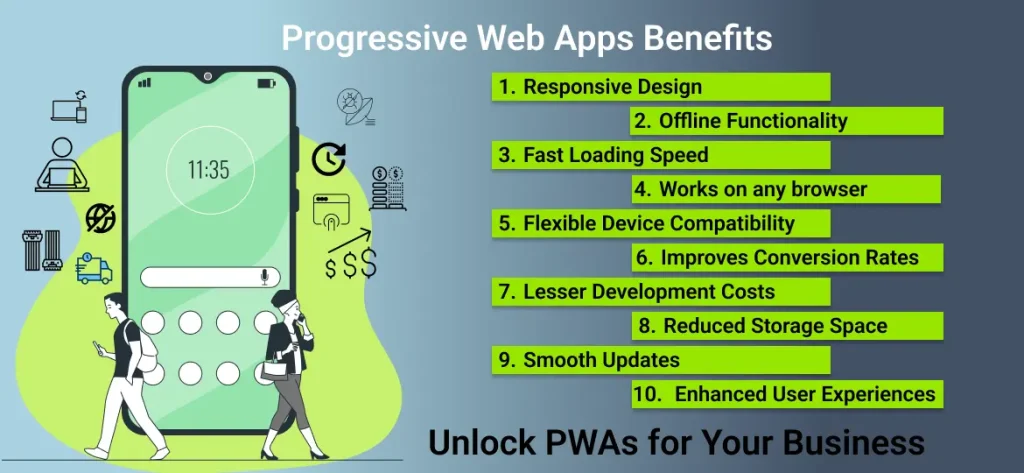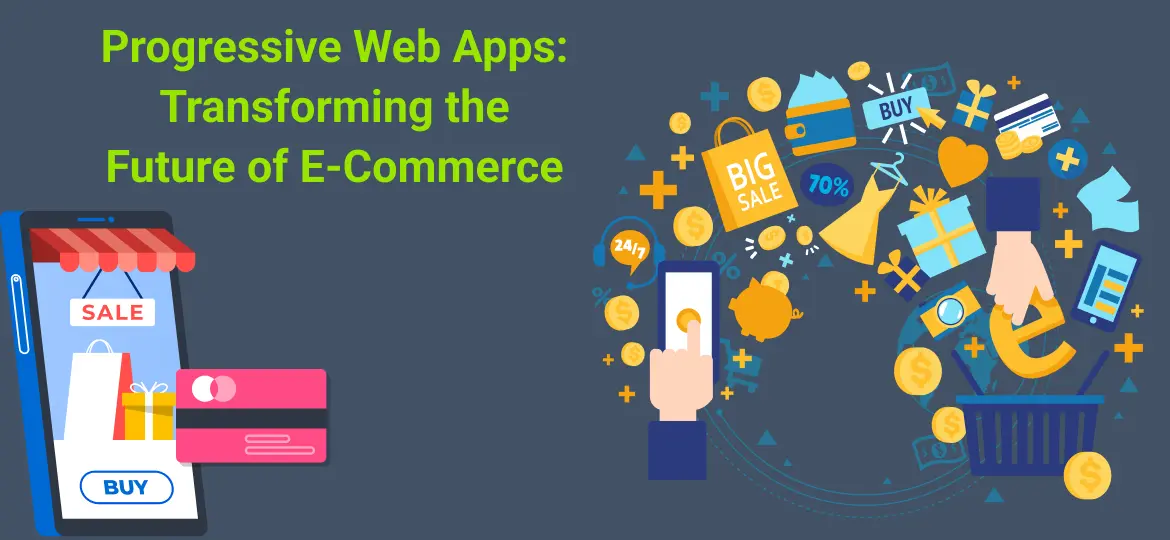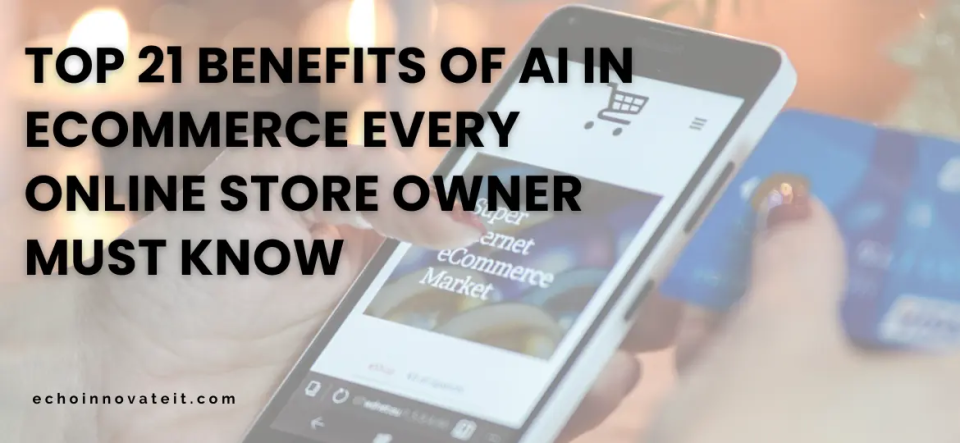In today’s fast-paced digital landscape, e-commerce businesses must stay ahead of the curve to meet evolving customer expectations. Progressive Web Apps (PWAs) have emerged as a game-changing technology that bridges the gap between web and mobile experiences. PWAs offer the speed and functionality of native mobile apps combined with the accessibility of a website, transforming how businesses interact with their customers. Let’s dive into how PWAs are reshaping the future of e-commerce and why they are essential for your business.
What Are Progressive Web Apps?
Progressive Web Apps are web applications designed to deliver an app-like experience on mobile and desktop devices. Unlike traditional apps that need to be downloaded from app stores, PWAs can be accessed directly through a browser. They use modern web capabilities to provide users with a seamless experience, including offline access, push notifications, and enhanced performance.
PWAs are built using standard web technologies such as HTML, CSS, and JavaScript, making them cost-effective and easy to maintain. With features like responsive design and service workers, PWAs offer fast loading times and reliable performance, even in areas with poor internet connectivity.
Benefits of Progressive Web Apps In Ecommerce

Progressive Web Apps (PWAs) offer a compelling suite of benefits for ecommerce businesses, fundamentally enhancing the online shopping experience for customers while streamlining operations for merchants. The foundation of a successful PWA lies in its responsive design, ensuring seamless adaptation to various screen sizes and devices, providing a consistent and engaging experience regardless of how a user accesses the online store.
This is further bolstered by flexible device compatibility, allowing PWAs to function smoothly across smartphones, tablets, and desktops without requiring separate, device-specific apps. Another critical advantage is offline functionality, which allows users to browse previously viewed items or add products to their cart even without an internet connection, dramatically improving accessibility and convenience.
For businesses, PWAs boast improved conversion rates as a result of these enhancements, leading to increased sales and revenue. The advantages extend to operational efficiency, as PWAs generally require lesser development costs compared to native mobile apps.
Responsive Design
PWAs are built with responsive design principles, ensuring a seamless user experience across a wide range of devices, from smartphones and tablets to desktops and laptops. The layout adapts fluidly to different screen sizes and orientations, providing a consistent and user-friendly interface regardless of how users access the app.
Offline Functionality
PWAs leverage service workers to enable offline access to previously loaded content. Even without an internet connection, users can browse cached pages, access essential information, and in some cases, even perform limited tasks. This enhances usability and accessibility, particularly in areas with unreliable connectivity.
Fast Loading Speed
PWAs are optimized for speed, utilizing modern web technologies to minimize loading times. They load instantly and provide a smooth, responsive experience, keeping users engaged and reducing bounce rates. This speed is crucial for user satisfaction and overall app performance.
Works on Any Browser
PWAs are built using open web standards, making them compatible with all modern web browsers. Users can access the PWA through their preferred browser without needing to download a native app from an app store. This cross-browser compatibility expands reach and simplifies access.
Flexible Device Compatibility
PWAs offer flexible device compatibility, working seamlessly on various devices, including smartphones, tablets, laptops, and even desktops. They bridge the gap between native apps and web applications, providing a consistent experience across different platforms and devices.
Improves Conversion Rates
The combination of fast loading speeds, offline functionality, and a smooth user experience contributes to higher conversion rates. PWAs offer a more engaging and user-friendly experience compared to traditional websites, leading to increased user interaction and conversions.
Lesser Development Costs
Developing a PWA can be more cost-effective than building a native app for each platform (iOS and Android). PWAs utilize a single codebase, reducing development time and resources. This makes them a viable option for businesses looking to reach a wider audience without a significant investment.
Reduced Storage Space
PWAs typically require less storage space on users’ devices compared to native apps. They are often smaller in size and don’t require installation from an app store, saving valuable storage space and making them more appealing to users.
Smooth Updates
Updating a PWA is seamless and hassle-free. Updates are deployed directly to the web server, and users automatically access the latest version the next time they open the app. This eliminates the need for users to manually download and install updates, ensuring everyone is always using the most current version.
Enhanced User Experience
PWAs offer an enhanced user experience by combining the best of web and native apps. They provide a fast, reliable, and engaging experience, with features like offline access, push notifications (if implemented), and a smooth, app-like feel. This contributes to increased user satisfaction and engagement.
The Future of E-commerce with Progressive Web Apps (PWAs)
In today’s digital landscape, e-commerce businesses are constantly on the lookout for innovative solutions to improve user experience, enhance conversion rates, and drive revenue growth. One cutting-edge technology that is revolutionizing the e-commerce industry is Progressive Web Apps (PWAs). PWAs offer a seamless and engaging shopping experience to customers, bridging the gap between web and mobile applications. By providing instant loading, offline access, and push notifications, PWAs ensure that customers can easily navigate and make purchases on their devices, even without a stable internet connection.
Furthermore, PWAs are cost-effective, require minimal maintenance, and can be easily updated, making them an attractive option for businesses looking to enhance their online presence. As the demand for seamless and personalized e-commerce experiences continues to rise, PWAs are poised to become the future of online shopping, empowering businesses to build loyal customer bases and drive long-term success.
Key Features of PWAs:
- Instant Loading: PWAs load quickly, even on slow networks, providing a seamless user experience.
- Offline Access: Customers can access and make purchases even without a stable internet connection.
- Push Notifications: PWAs allow businesses to send timely and relevant notifications to customers, increasing engagement and conversion rates.
- Seamless Navigation: PWAs provide an intuitive and user-friendly interface, making it easy for customers to navigate and find products.
- Cost-Effective: PWAs require minimal development costs and maintenance, making them a cost-effective solution for businesses.
- Easy Updates: PWAs can be easily updated, ensuring that businesses can quickly respond to changes in the market and customer needs.
- Personalization: PWAs enable businesses to offer personalized recommendations and offers to customers, enhancing their shopping experience.
Benefits of PWAs for E-commerce Businesses
- Increased Conversion Rates: PWAs provide a seamless and engaging shopping experience, increasing conversion rates and revenue.
- Improved Customer Engagement: PWAs allow businesses to send timely and relevant notifications, enhancing customer engagement and loyalty.
- Enhanced User Experience: PWAs offer a fast, efficient, and user-friendly interface, improving the overall shopping experience for customers.
- Cost Savings: PWAs require minimal development costs and maintenance, reducing operational costs for businesses.
- Competitive Advantage: PWAs provide a unique and innovative shopping experience, setting businesses apart from competitors and establishing a strong online presence.
Conclusion
In conclusion, Progressive Web Apps (PWAs) are poised to revolutionize the e-commerce industry, offering a seamless and engaging shopping experience to customers. With features such as instant loading, offline access, and push notifications, PWAs are the perfect solution for businesses looking to enhance user experience, drive revenue growth, and establish a strong online presence. As the demand for seamless and personalized e-commerce experiences continues to rise, PWAs are the future of online shopping, empowering businesses to build loyal customer bases and drive long-term success.
FAQs: Progressive Web Apps: Transforming the Future of E-Commerce
What is a Progressive Web App (PWA) and how does it benefit e-commerce?
A Progressive Web App (PWA) is a web application that combines the best features of websites and mobile apps. PWAs enhance e-commerce by offering fast loading speeds, offline functionality, push notifications, and a seamless user experience across devices, ultimately improving customer engagement and conversions.
How do PWAs improve the performance of e-commerce websites?
PWAs use modern web technologies like service workers and caching to load pages quickly, even on slow networks. They eliminate the need for full-page reloads, enhance responsiveness, and ensure a smooth shopping experience, reducing bounce rates and increasing user retention.
Can PWAs replace native mobile apps for e-commerce businesses?
Yes, in many cases, PWAs can replace native apps. They do not require app store downloads, take up less storage, and work across all devices. They provide an app-like experience with features like offline browsing and push notifications, making them a cost-effective alternative to native apps.



